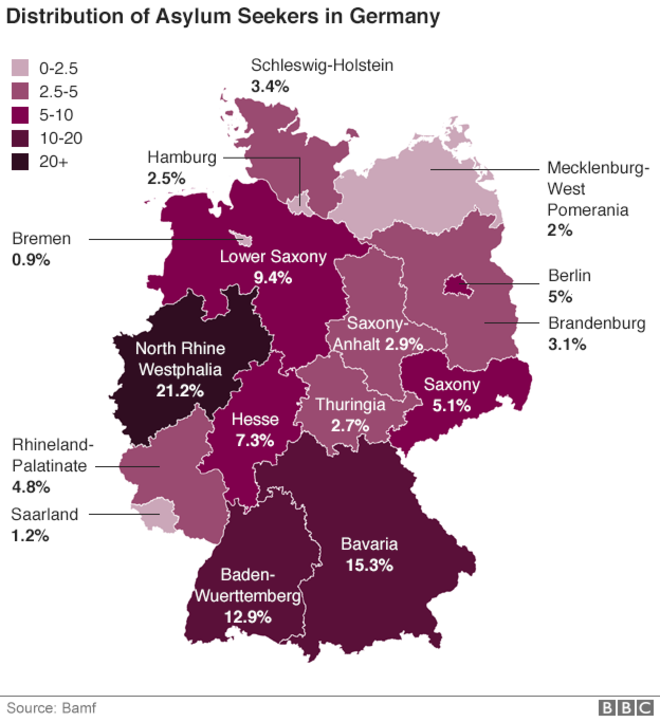Stories of arrival: Germany
Before Christmas, Chancellor Merkel seemed to criticise the European nations for not being sufficiently Christian in their response to the human tragedy. To what extent did that strike a chord among German evangelicals?
Germany is so involved in the refugee situation that there is hardly any time to deal in depth (substantially) with the situation in other countries. Overall we would hope that other countries would have a greater readiness to accept refugees. That way EU-countries would show that we jointly cooperate to deal with the emergency. It seems that even the Evangelicals in Europe find themselves in the role of simply observing what is going on in Germany.
But there are also Evangelicals in Europe who support the refugee situation in the Balkans and Greece. They probably need help more than we.
How have opinions changed or developed with the incidents in Cologne and elsewhere over New Year?
At present it is not possible to predict the consequences of the incidents in Cologne. The media made the news coverage difficult by giving varying reports. It is my impression that this led to confusion and a feeling of uncertainty as who to trust. It seems that the media have lost their credibility. But if more incidents like that will happen, the mood will certainly shift.
I hold in high regard the appeal of migrants who have been in Germany for some years, asking that people who come as migrants or refugees to this country should also respect the hospitality shown to them.
“There is a time for refugees upon arrival in a country when they are quite open getting to know new things. Once this window of opportunity is closed people might not be interested in the Christian faith anymore.”
The difficulties start when the inappropriate behaviour of individuals leads to condemnation of whole ethnic groups. We can only support the measures called for by politicians that people who have guest status and are evidentially committing criminal offences must leave the country. If this is implemented resolutely it will have a positive impact on the anxieties of our fellow citizens.
How have German mission agencies and evangelical churches responded to the crisis?
Many of the mission agencies and churches evaluated the situation and set new priorities. I am fascinated by the commitment and creativity many show to the refugees locally. Because refugees are being placed all over Germany by quotas defined in advance, churches and mission agencies have opportunities to engage all over the place. The government is quite good at organizing practical aid (clothing donations, etc.) in Germany. Offers are given for language courses and help with trips to the authorities, etc. Playgroups are offered to children.
Lots of great material as a giveaway has been published to explain culture and faith of the Christians. Christian foundation courses like Al-Massira (similar to the Alpha Course) help Muslims to understand Christian faith in their culture.
What has your faith meant to you as you’ve tried to process the scale of the human issue facing regional and national authorities as well as the churches and agencies that you relate to most closely?
It seems that the Christian conception of man still prevails and has considerable influence in our country. I got the impression that most people were aware of the human suffering and ready to help immediately.
The German AEM did not have the impression that we would have to start a special call to help. Last year we decided to publish a mutual statement to encourage people who are active in working with refugees and on the other hand deal with anxieties of Christians.
There is a great willingness to help but it is important to realize the anxieties of the people that are increasing as more and more refugees arrive. It is a legitimate question to ask how many refugees a country like Germany is able to receive if a certain standard for support and integration should be guaranteed. People should not merely be interned in camps.
What do you see as the medium to long- term prospects for the refugees presently in Germany, and for the churches and mission agencies working with them?
It is very difficult to foresee the medium and long-term development. A lot will depend on how the situation in the Middle East will evolve. If the wars come to an end it is possible that people want to return to their home country.
If the crisis in the Middle East escalates further most of the refugees will want to stay. I hope that until then we will have integrated them successfully into our country.
There is a time for refugees upon arrival in a country when they are quite open getting to know new things. Once this window of opportunity is closed people might not be interested in inter alia the Christian faith anymore.
What would you want to say to other evangelical leaders across Europe in the light of the experience and response of the churches in Germany?
I believe that we have to prepare ourselves in Europe for more refugees that will come for all kinds of reasons. People in our churches have to be prepared. Especially mission agencies are able to commit themselves with their staff because they can draw from their intercultural experiences. German churches should seek to work increasingly together with migrant churches or other foreign-language churches. I think the time has come that we should work together more closely. In Germany we will do this under the slogan „Jesus Unites”.
Wolfgang Büsing is the General Secretary of the Association of Evangelical Missions, Germany and Chairman of the European Evangelical Missions Association.

